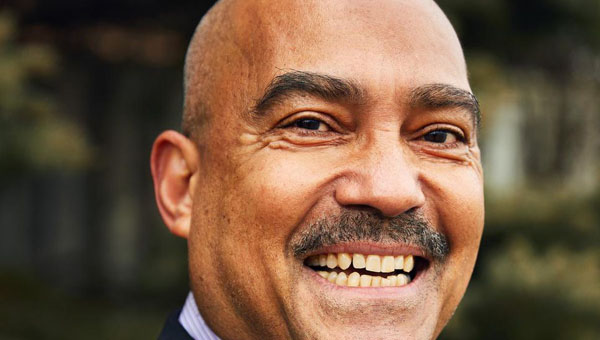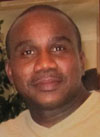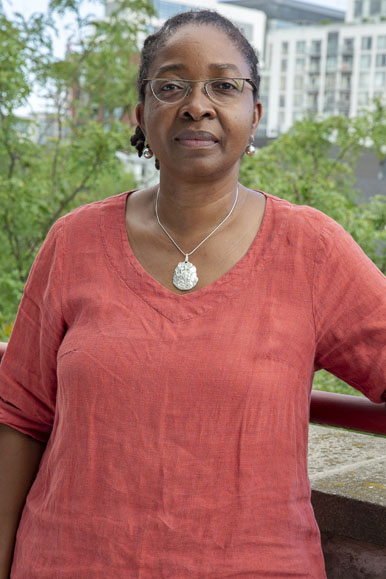By Neil Armstrong
Contributing Editor
TORONTO, Ontario (Friday, February 17, 2023) — An eminent group of Black scientists in Ontario has proposed that the provincial government adopt its vision of “an evidence-informed public system approach that supports the equitable health, wellbeing and prosperity of Ontario’s Black population.”
The Black Scientists’ Task Force on Vaccine Equity, which was established by the City of Toronto, in partnership with TAIBU Community Health Centre, to address Black community concerns and issues related to the COVID-19 pandemic, testing and vaccines in 2020, says the Ontario government has taken important steps to address racism, racial discrimination, and anti-Black racism.
However, it says further work must be done to achieve the province’s goal to eliminate systemic racism and advance racial equity in Ontario, and ensure equitable access to public services, as well as health and social outcomes for Ontario’s Black population.
This is outlined in a report, “Advancing Racial Equity: Ontario’s Anti-Black Racism Strategy,” written by Akwatu Khenti, an assistant professor at the Dalla Lana School of Public Health.
Dr. Khenti was the special advisor to the City of Toronto’s Targeted COVID Equity Action Plan and Chair of the Black Scientists’ Task Force on Vaccine Equity, which included Jamaican, Dr. Upton Allen, senior associate scientist and professor at the University of Toronto and Division Head of Infectious Diseases at the Hospital of Sick Children.
“We recommend the province mobilize the whole of government, expand inter-sectoral approaches that apply anti-Black racism and equity lenses, and partner with the Black community to develop and implement clear, coherent evidence-based plans to address anti-Black racism and promote equity for Ontario’s Black population. The health, education, child welfare and justice sectors are critical sectors to initiate an Anti-Black Racism Strategy in the Province,” states the 45-page report, which proposes the Ontario Anti-Black Racism Strategic Framework “to guide the province as it partners with the Black community to co-create and implement a comprehensive Ontario Anti-Black Racism Strategy.”
The task force notes that the report demonstrates the persistence of patterns of anti-Black racism, across the provincial public sector, and underlines the importance of understanding and addressing the distinct barriers and disparities faced by Black Ontarians.
“The bottom line is that the many facets of anti-Black racism and the ways it manifests in the public system need to be better understood. That understanding needs to be used to shape provincial policy, investments and action, so that the provincial public system becomes more effective and equitable.
“This requires further race-based data and research, aimed at understanding the inequities Black people in Ontario face, and co-designing and co-implementing policy and programs to address these inequities, in partnership with the Black community.”
Two health stalwarts, Dr. Allen, Head of Infectious Diseases, at Sick Kids Hospital and a member of the task force; and Angela Robertson, Executive Director of Parkdale Queen West Community Health Centre, were keynote speakers at the task force’s final community event — the Black Health Fair and Wellness Summit, held in January, at Daniels Spectrum in Regent Park, Toronto. They examined lessons that must be learned from the COVID-19 pandemic, focusing on Black community-led solutions.
Robertson said, while Black folks knew that when COVID hit they would be differentially and disproportionately left impacted by it and while seeing data coming out of the US and UK indicating this, members of the Black community in Canada were being told that it was not happening the same way, “and we would only be treated equally and there will be an equal distribution of the impact of COVID on all of us here.”
She noted, however, that the proof presented a different story, given the community’s history pre-COVID, dealing with pre-existing structural inequalities.
“We knew that we were entering COVID with the presence of anti-Black racism. We knew that we were entering COVID with the experience of discrimination, in terms of access and differential and poorer outcomes in the healthcare system, so we knew that COVID’s impact on us would be detrimental and significantly different.”
The executive director said, in the face of that situation, there is a way in which the ills that face the Black community can be hidden, “when we’re told we’re not going to collect the information and, therefore, we can’t prove that COVID is having a differential impact. And at the same time that we don’t collect the information is then, when we speak to the differential impact, we, as Black folks without the data, are then dismissed as anecdotes and stories.”
She said Black folks want to move from being anecdotes and examples. “We want to have the data, so that the data can be used as evidence to really inform and make structural changes to the things that impact black life.”
In examining what made a difference in how the Black community was enabled and supported, and continue to survive COVID and its differential impact, she said that was made possible “by the organizing of Black community members, organizing for Black people.”
“One of COVID’s learning for us is that we knew — and we know — that we can support our communities and it was individuals like this group,but it was also the folks out of Black Creek, the folks out of Jane Finch, the folks out of JCA [Jamaican Canadian Association], the folks out of the Black Physicians Association — we demonstrated that we can do for ourselves if, we are provided the resources to enable that to happen.”
Considering the question of what change should look like, Robertson said it could not mean that, “we believe that a return to homeless shelters is the answer to COVID’s response to homelessness.
“If you don’t know, you should know that within the sheltering system Black folks make up — those self-identified black folks — make up over 30% of the folks, who are in Toronto’s homeless sheltering system. So, in my mind, housing and affordable housing is an anti-Black racism response.”
Regarding the mayor’s recommendation of a $48.3 million increase to the $1.1 billion budget of Toronto Police Service, Robertson said Black folks are usually on the adverse receiving end of policing in communities.
She said investment in policing is not the answer that the Black community needs in a post-COVID recovery, and “we must push for, and support, community-led crisis response teams to take policing out of mental health crisis response.”
Robertson encouraged those gathered to push back against the political notion of scarcity, because resources are not scarce. “There are decisions that are deliberately made that says you will not get, because the interest is over here and your interest is not our interest.”
Dr. Allen said the Task Force was extremely pleased that it was able to provide to the community in a manner that not just focused on COVID, but on other aspects of health promotion, to enhance the health of Ontarians, particularly members of the Black community.
The free event offered health checks, a vaccine clinic, access to chiropractors, health information on cancer, sickle cell and other high-risk diseases and more. It was sponsored by TAIBU Community Health Centre, Black Scientists’ Task Force and the City of Toronto.
On June 3, The Walnut Foundation, which had a health and wellness booth at the summit, will hold its 9th annual Walk the Path walkathon for men’s health and prostate cancer awareness. It will be held from 8:00 a.m. to 12:00 p.m. at Etobicoke Creek Trail Brampton, 30 Loafers Lake Lane at Sandalwood Parkway and Conestoga Drive. The honorary Chair is Ivan Dawns, the International Union of Painters political director.
 Pride News Canada's Leader In African Canadian & Caribbean News, Views & Lifestyle
Pride News Canada's Leader In African Canadian & Caribbean News, Views & Lifestyle







